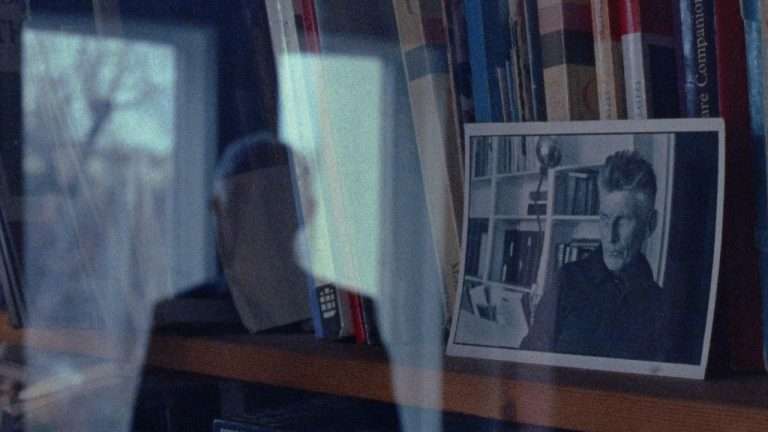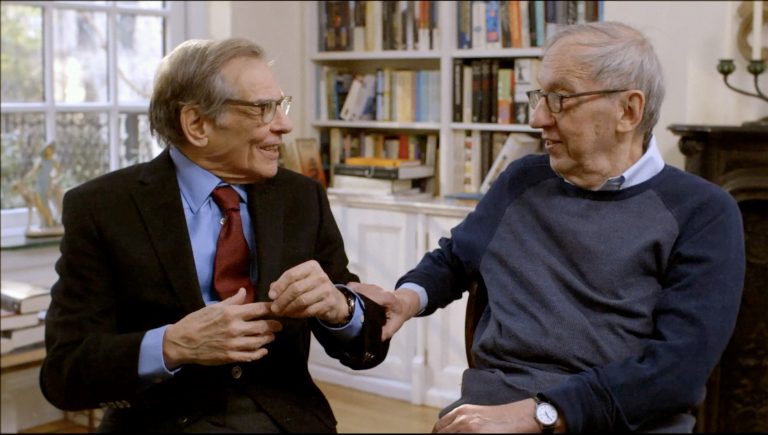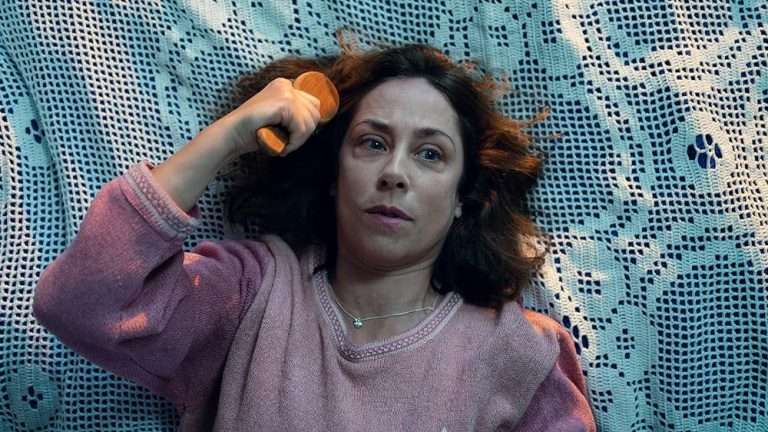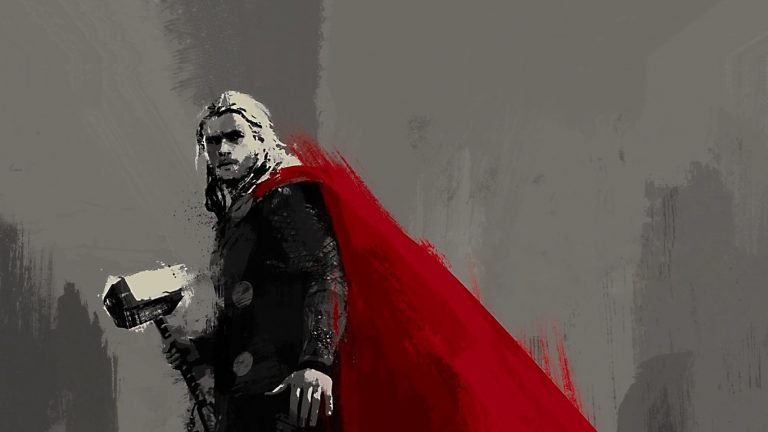At the risk of making this review feel firmly dated within the year of our lord 2024, there is much talk that goes around these days regarding the term “nepo-baby.” And true, while the products of Hollywood nepotism have long run across generations of industry insiders—from actors to producers to directors—little notice is given to the notion of “nepo-siblings.” In stomps The Front Room, a loud and proud debut feature from some first-time duo known as the Eggers brothers.
A fresh-faced directing team whose greatest claim to fame so far is their kinship with the past decade’s horror it-boy, those uninitiated may be dismayed to learn that the team collectively known as the “Eggers brothers” does not, in fact, include celebrated brother Robert (of The Witch and The Lighthouse fame), but rather consists of his two half-siblings, Sam and Max. While The Front Room may not possess the sort of laser-focused control over the craft of horror that has made the upcoming Nosferatu such a hotly anticipated feature, Robert’s siblings nonetheless possess their own idiosyncratic interest in complex tonal balancing.
This is what makes the story of Belinda (Brandy) and Norman (Andrew Burnap) something more than the standard familial psych-horror operation one might expect. Suddenly informed of Norman’s father’s passing, he and a heavily pregnant Belinda, both struggling to make ends meet and provide for their incoming family, are given an option. Norman’s widowed step-mother Solange (Kathryn Hunter) will sign over all of her assets—apparently, it’s a hefty sum—in exchange for the fulfillment of her late husband’s final wish: that she be brought in to live with her step-son and daughter-in-law.
The problem is that Solange’s personality naturally fuses two traits that would drive any couple—let alone one with a baby on the way—all the way up the walls: pushy in-law dominance and religious fanaticism. That Solange is also casually discovered to have been a sister of the confederacy is just one of many revelations that add to the button-pushing nature of her entire existence, and it’s here where The Front Room attempts to stake its claim as a distinct vision of horror-comedy.
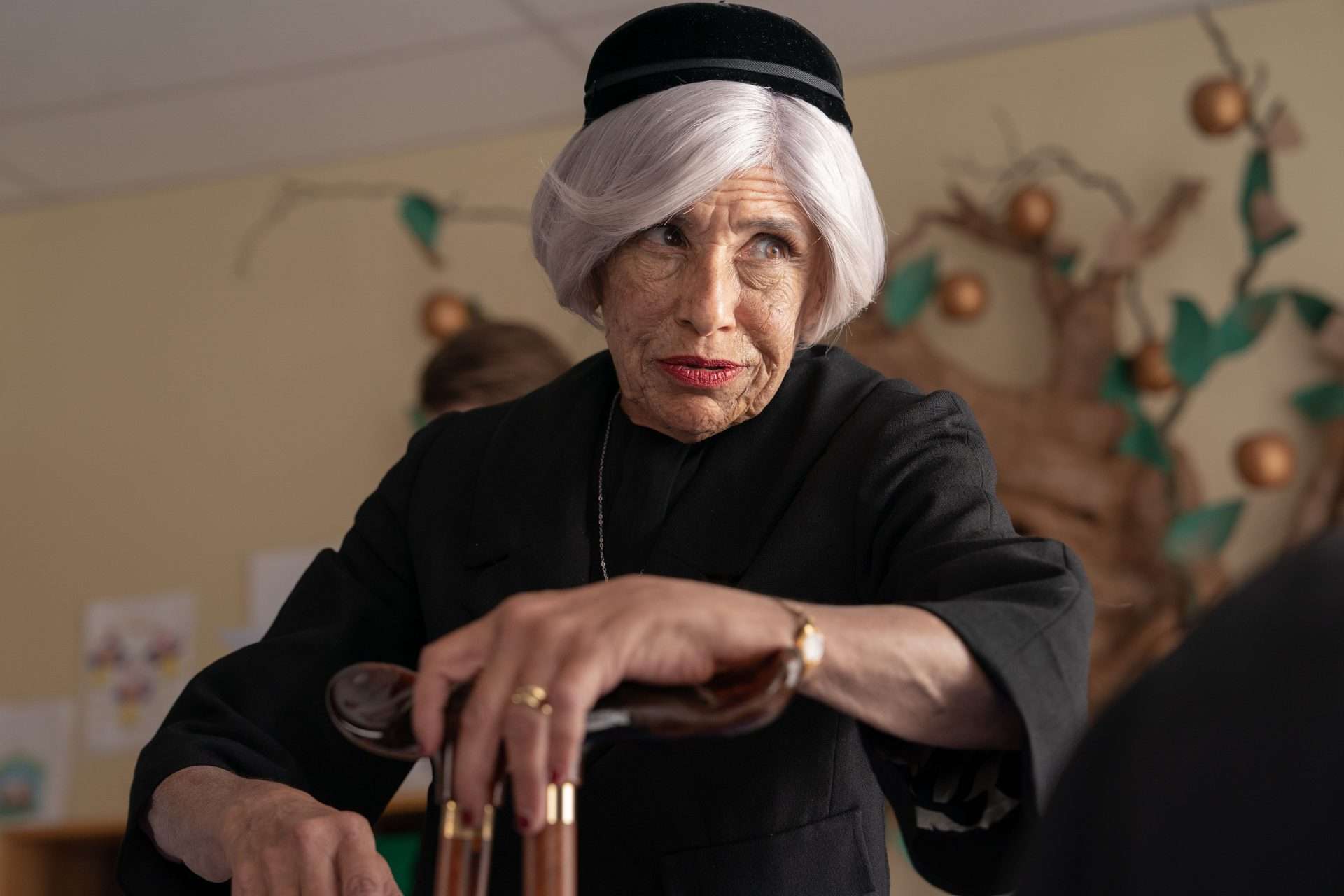
Firmly planted within the family’s virtually isolated house for almost the entire runtime, the three-person cast—other characters may pop in and out, but very infrequently—is allowed by the Eggers brothers to mine the discomfort of this situation for all the awkward suffocation that one would expect, but in so doing, makes an effort to present that awkwardness with a comedic flair. It doesn’t always land, but there remains a tonal wire-walk at play between the genuine horrors of Solange’s casual racism, the supernatural visions and implications of her behavior, and the occasional fart joke that wouldn’t place this film entirely outside the family tree of the same guy who made The Lighthouse.
Most of the success in this area comes down to Hunter’s performance, a perfect calibration of the bit-player’s alluring hunched physique and gravelly voice stretched out to its most unsettling and hilarious ends yet. With her dual canes thumping across the floor and hunching over with a passive-aggressive grin, Hunter’s physical demeanor is akin to that of a praying mantis; a predatory approach made all the more potent by her character’s endless hunger for dominance in the household. Twisting her syllables into a deliciously skewed Southern drawl that clashes with her own inescapably British timbre, Hunter’s knowledge of what The Front Room is aiming to be does every bit of its part to elevate the film where the Eggers occasionally find difficulty in doing so themselves.
The game the writer-directors are playing here is clearly one informed primarily by the tonal effects of music. This is made entirely obvious in the opening credits, which are soundtracked by what sounds like a meeting point between a whistling dixie and the whistling that accompanies a UFO landing. Marcelo Zavros’s score is insistent in its juggling act of atmosphere. Still, like the character of Solange herself, it’s an insistence that may not be aware of how much mileage it can actually cover with success.
In tweaking the formula of the evil in-law narrative, the Eggers brothers admirably take a shift in the usual dynamic that demonstrates at least a passing interest in generational trauma. Rather than Norman being the cluelessly doting mama’s boy who needs to be convinced of his stepmother’s evil as she quietly tortures Belinda, The Front Room makes it clear from the start that he is the one who, tormented by a childhood under her ruthlessly evangelical thumb, is entirely skeptical about having her in his life at all, instead convinced by Belinda to give this arrangement a chance. For what it’s worth, this shift in the expected formula allows for a more compelling development than what one may initially expect from a potentially rote storyline.
The Front Room undoubtedly leaves space for Sam and Max Eggers to sharpen their grasp of atmosphere and musical guidance to the point of precision that has defined their half-brother’s own growing legacy, but the film’s flat lighting and inconsistent visions of the supernatural, at the very least, leave them with a place to start. A film is like a house: a rough structure in need of discipline and a warm touch. Perhaps Sam and Max merely need their own doting stepmother-in-law to enter the fray and drive them mad with overbearing ideas to aggressively dismiss.



![The Matrix Resurrections [2021] Review – A Romantic Heist Film That Has a lot to say about Nostalgia, Freedom and Choice](https://79468c92.delivery.rocketcdn.me/wp-content/uploads/2021/12/The-Matrix-Resurrections-768x384.jpg)

